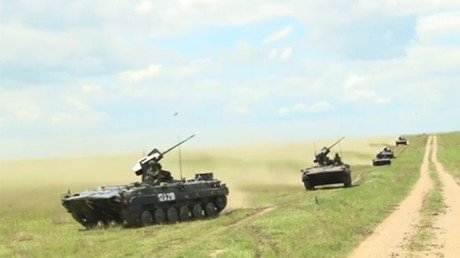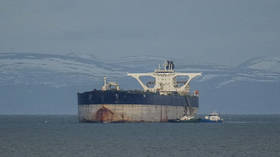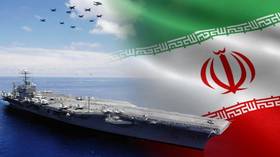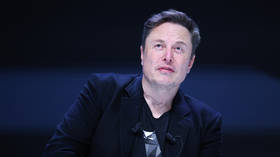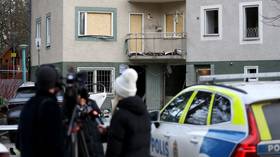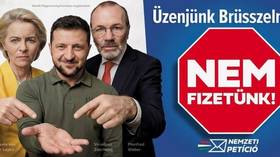Putin: Romania ‘in crosshairs’ after opening NATO missile defense base
During a visit to Greece intended to repair ties with the EU, Vladimir Putin said that Russia has “no choice” but to target Romania, which has recently opened a NATO missile defense base, and Poland, which plans to do so within two years.
“If yesterday people simply did not know what it means to be in the crosshairs in those areas of Romania, then today we will be forced to carry out certain measures to ensure our security. And it will be the same with Poland,” Putin said during a joint press conference with Greek Prime Minister Alexis Tsipras in Athens on Friday.
The Russian President was referring to the Deveselu facility that officially became operational in May after nearly a decade and $800 million of planning and construction.
“At the moment the interceptor missiles installed have a range of 500 kilometers, soon this will go up to 1000 kilometers, and worse than that, they can be rearmed with 2400km-range offensive missiles even today, and it can be done by simply switching the software, so that even the Romanians themselves won’t know,” said Putin, who is in Greece for a two-day tour.
“We have the capability to respond. The whole world saw what our medium-range sea-based missiles are capable of [in Syria]. But we violate no agreements. And our ground-based Iskander missiles have also proven themselves as superb,” continued Putin.
Russia’s political and military leadership has repeatedly spoken out against the missile defense shield since it was proposed during the George W. Bush administration, and Putin reiterated that Moscow does not believe the European part of it is targeted against a potential threat from Iran.
“NATO fend us off with vague statements that this is no threat to Russia… That the whole project began as a preventive measure against Iran’s nuclear program. Where is that program now? It doesn’t exist,” said Putin, referring to the nuclear treaty that was concluded between the world’s major powers and Tehran last year. “We have been saying since the early 2000s that we will have to react somehow to your moves to undermine international security. No one is listening to us.”
Alexis Tsipras in his turn reiterated that Russia is a player in the European security theater and that current attempts to alienate Moscow with measures such as sanctions reminds him of Cold War times.
“European security cannot be achieved without cooperation and dialogue with Russia,” Tsipras said in an interview with Sputnik. “I don't believe that we can move forward or ensure compliance with international law while caught in a vicious circle of sanctions, militarization and Cold War rhetoric.”
President Putin arrived in Greece on Friday for a two-day visit that involves meetings with his Greek counterpart, Prokopis Pavlopoulos, Prime Minister Alexis Tsipras, and other top-level discussions.
It is the Russian president’s first EU trip in seven months, and comes just weeks before Brussels decides on whether to extend EU sanctions against Russia.
Bilateral trade and investment, as well as joint energy and transport projects, were said to be major issues on the agenda for the visit. Another pressing matter for both Athens and Moscow, the economic sanctions against Russia, will also be on the table. Prime Minister Tsipras has already told RIA Novosti that the restrictions have had a negative impact on Russian-Greek economic ties, but added there are areas not covered by the sanctions where business between the two countries could perform well.
The Greek PM laid a foundation of trust with the Russian leader and even proposed a visa-free travel regime in the EU for Russian nationals.
“We overcame all the difficulties that arose due to changes in the issuance of Schengen visas, strengthened the work of our consulates in Russia by attracting dozens of new employees, and we are ready to meet the high demand of Russian nationals for travel to Greece. At the same time, I find it necessary, as I have already mentioned at a European level, that dialogue is relaunched on easing the visa regime for Russian citizens,” Tsipras said.
Promoting international security and tackling illegal migration, which is the hot issue in Greece, are also points of mutual interest.
On Saturday, President Putin will attend a prayer service at Mount Athos, which is home to 20 monasteries and is an important spiritual site for Orthodox Christians. Joined by Patriarch Kirill, leader of the Russian Orthodox Church, the president is expected to take part in millennial celebrations of the Russian monastic presence on Athos.
